Back to the boardgame café for two
new games and one old one. With images;
cc-by-sa on
everything.
We began the evening with
Black Fleet,
a simple game of merchantmen and pirates. Your merchantman takes goods
from port to port; your pirate ship runs down enemy merchantmen,
steals their goods, and buries treasure; the two ships of the Navy,
controlled by whichever player is active, chase down and sinks
pirates. Movement cards give one a choice about which ships to move
farthest.
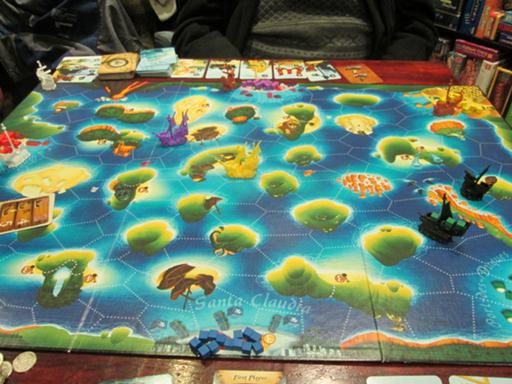
One is never at a loss for what to do on one's turn. There's usually a
merchant run to be completed, or an enemy merchant within range to be
robbed. Conflict is assured, indeed pretty much forced by the narrow
sea lanes.
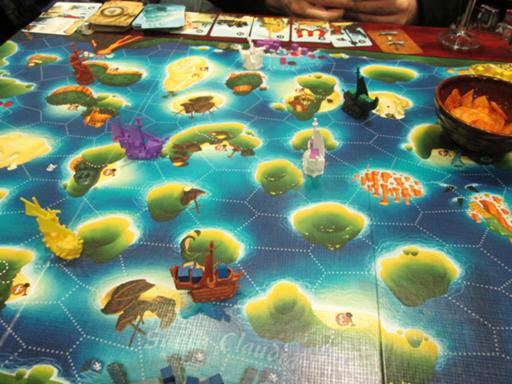
Everything is scored in doubloons, rather fine small metal coins (I'm
a sucker for weighty components in a game). One buys upgrades, from a
set dealt randomly at the start of the game, and when one's bought all
four one can pay some more to win the game.

Fortune cards allow one to break the rules, and the possibility of
fortune cards prevents too much analysis of optimum routes. I ended up
winning by having two money-earners ready to go without warning,
bringing me in enough cash to buy the final card.
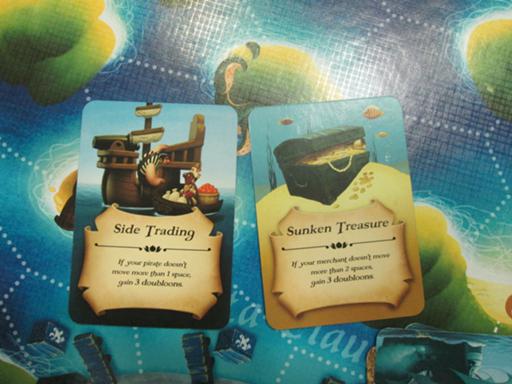
It's probably a good introductory game, but even we experienced beardy
gamers had a lot of fun with it; I don't think I'll buy it straight
away, but I wouldn't be surprised if I picked it up eventually.
We went on to revisit
Among the Stars,
which we'd played last July with just two players, and thought it
didn't really work. This time we had three, and used objectives
(Suburbia-style "score this much for having the most of this type of
thing") and alien races (each tweaking the game in a minor way).
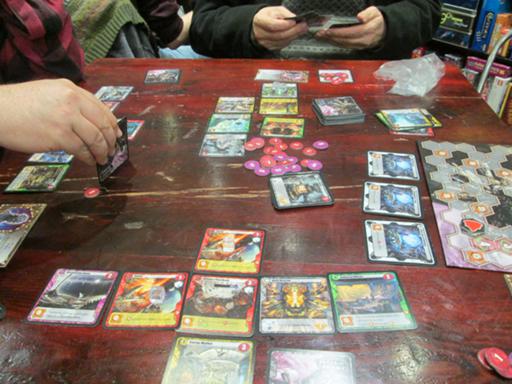
It was much more enjoyable without the dummy player mechanic, even if
we did pretty much fill the table.
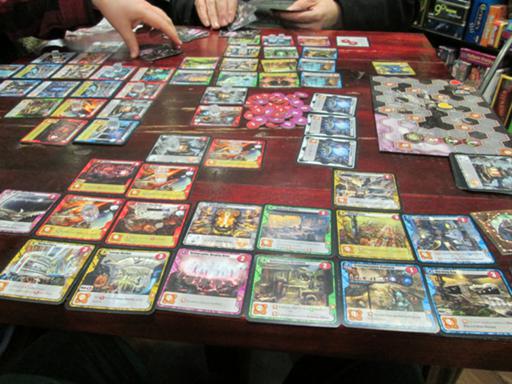
I messed up several of my cards through failing to supply energy
cubes, but still thought I was doing reasonably well, until one player
picked up forty points of game-end bonuses.
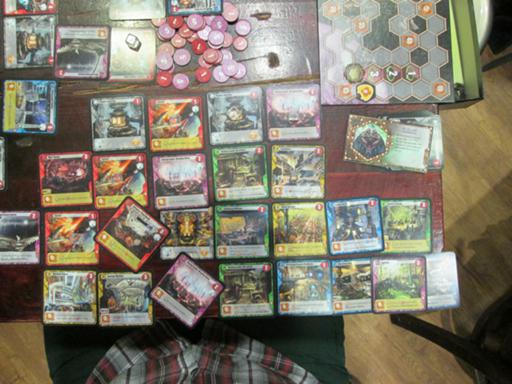
I think Suburbia mostly fills this sort of building-game niche for me,
particularly since it accepts a greater complexity in return for being
able to have both forward and backward influences (if thing A gets a
benefit from being placed next to thing B, in Among the Stars you need
to place thing B first in order to gain said benefit, whereas in
Suburbia it doesn't matter as long as they end up next to each other).
Still better than I had thought it was, though I think it might even
be improved without the hand-passing.
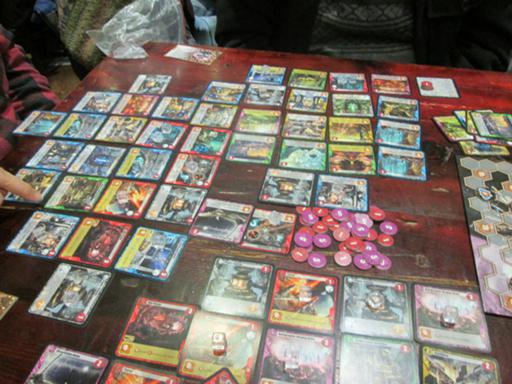
Finally we had a couple of rounds of
Council of Verona.
In a setting borrowed wholesale from Shakespeare, one's playing
characters either into the council or into exile; some characters have
things they want to happen (like "more Montagues than Capulets on the
council"), while others have powers ("move someone from exile to the
council"). One puts face-down influence markers on people whose
objectives seem like to succeed (or of whom one wants ones opponents
to believe that one thinks their objectives are likely to succeed).
Doesn't leap out and beg to be bought. Yes, there's something to it,
and it's probably better with four or five players where one has four
influence markers each rather than three; there seemed to be a
significant advantage to being the last to play (last player won each
game).
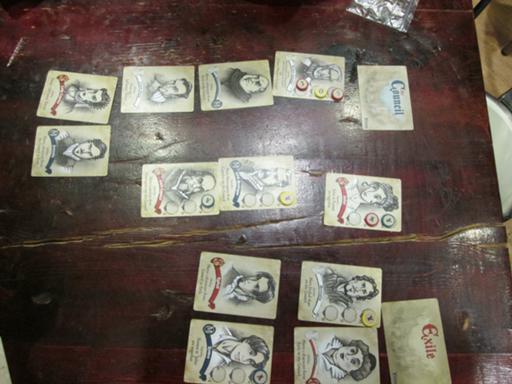
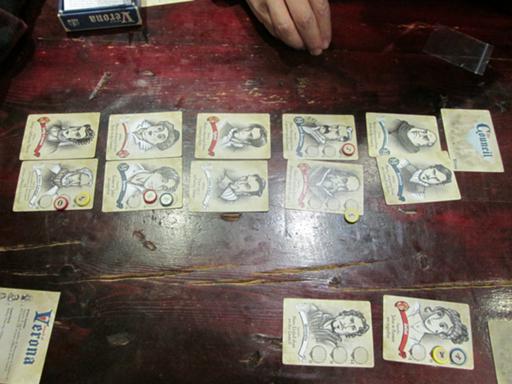
Comments on this post are now closed. If you have particular grounds for adding a late comment, comment on a more recent post quoting the URL of this one.